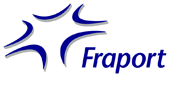Presents Comprehensive 3-Point Package of Demands
 Dr. Stefan Schulte, Fraport AG's new executive board chairman,
has presented the European Commission with a three-point package of
demands for alleviating the burden faced by airports. Speaking to
journalists in Brussels Wednesday, Schulte advocated the "complete
abolition of regulations for liquids in carry-on baggage." However,
he disapproved of any rushed and costly interim solutions regarding
liquid restrictions. He said that it would be better to wait until
new technologies are available that detect prohibited liquids in
hand luggage.
Dr. Stefan Schulte, Fraport AG's new executive board chairman,
has presented the European Commission with a three-point package of
demands for alleviating the burden faced by airports. Speaking to
journalists in Brussels Wednesday, Schulte advocated the "complete
abolition of regulations for liquids in carry-on baggage." However,
he disapproved of any rushed and costly interim solutions regarding
liquid restrictions. He said that it would be better to wait until
new technologies are available that detect prohibited liquids in
hand luggage.
Fraport is an airport management company which manages Frankfurt
Airport in Germany, and others throughout Asia and the Middle
East.
Schulte explained that the rationality of aviation-security
regulations needed to be urgently examined. Ground processes, which
account for 35 percent of the total operating costs of European
airports, are as expensive and burdensome for a transfer airport
like Frankfurt (FRA) as fuel costs are for the airlines. Before the
9/11 terror attacks the share of fixed costs amounted to between
five and eight percent.
Schulte says the EU Commission's proposal for a directive on
aviation security charges is incompatible with the new directive on
airport fees, and does not address the central responsibility of
the member states. Since the proposal's focus is on independent
regulatory agencies and arbitration proceedings in cases of
dispute, it does not address the States' ultimate responsibility
for security matters, and safeguarding against acts of terror is in
essence a sovereign duty of the State, he said. Schulte called on
the members of the European Parliament to remain steadfast
vis-a-vis the plans of the EU Commission - especially since the
directive on charges was already amended only six months ago.
 Fraport's CEO also voiced criticism on the revision of the EU
slot allocation directive. As part of their legal obligation to
operate the airport, airport companies must hold available an
infrastructure that is open to all users during operating hours.
The extremely high share of fixed costs requires an efficient and
cost-effective use of airport capacities. No economy can or should
afford idling capacities at major airports such as Frankfurt, which
has faced an excess of demand for many years.
Fraport's CEO also voiced criticism on the revision of the EU
slot allocation directive. As part of their legal obligation to
operate the airport, airport companies must hold available an
infrastructure that is open to all users during operating hours.
The extremely high share of fixed costs requires an efficient and
cost-effective use of airport capacities. No economy can or should
afford idling capacities at major airports such as Frankfurt, which
has faced an excess of demand for many years.
Therefore, Schulte called on the EU Commission to review the
slot allocation directive. This directive should contain "clear and
economically justifiable regulations for using the existing
infrastructure as efficiently as possible".
Schulte stated that Frankfurt Airport is playing a pioneering
role in sustainable growth and environmental responsibility." He
pointed out his company's plans for expanding FRA in a
carbon-neutral way and to reduce carbon emissions per traffic unit
by 30 percent by the year 2020. Together with Munich, Frankfurt
Airport was the first airport in Germany to introduce
emissions-based airport charges at the beginning of 2008 for a
multi-year test phase. Thus, FRA has also become a founding member
of the Airport Carbon Accreditation (ACA) scheme, whereby European
airports are committing themselves verifiably to reducing CO2
emissions and energy consumption.
In addition, Schulte underscored "Fraport's role model in the
use of electric vehicles". Ten percent of Fraport's vehicle fleet
runs on certified green electrical power. The first mass-produced
electric vehicle available in Europe is currently undergoing the
first major practical testing in Germany at Frankfurt Airport.
Fraport plans to increase the share of electric vehicles in its
fleet in the future.
In conclusion, Schulte described Fraport's Airport Expansion
Program (AEP) as decisive for the future viability and
competitiveness of Frankfurt Airport. It will also help the
Frankfurt/Rhine-Main region to maintain its position as an
"economic powerhouse in the European competition for attracting
businesses." Expanding Germany's central air transportation hub is
a task of national importance, stated Schulte.
 ANN's Daily Aero-Term (04.28.24): Airport Marking Aids
ANN's Daily Aero-Term (04.28.24): Airport Marking Aids Aero-News: Quote of the Day (04.28.24)
Aero-News: Quote of the Day (04.28.24) ANN's Daily Aero-Linx (04.28.24)
ANN's Daily Aero-Linx (04.28.24) Aero-News: Quote of the Day (04.29.24)
Aero-News: Quote of the Day (04.29.24) ANN's Daily Aero-Linx (04.29.24)
ANN's Daily Aero-Linx (04.29.24)




